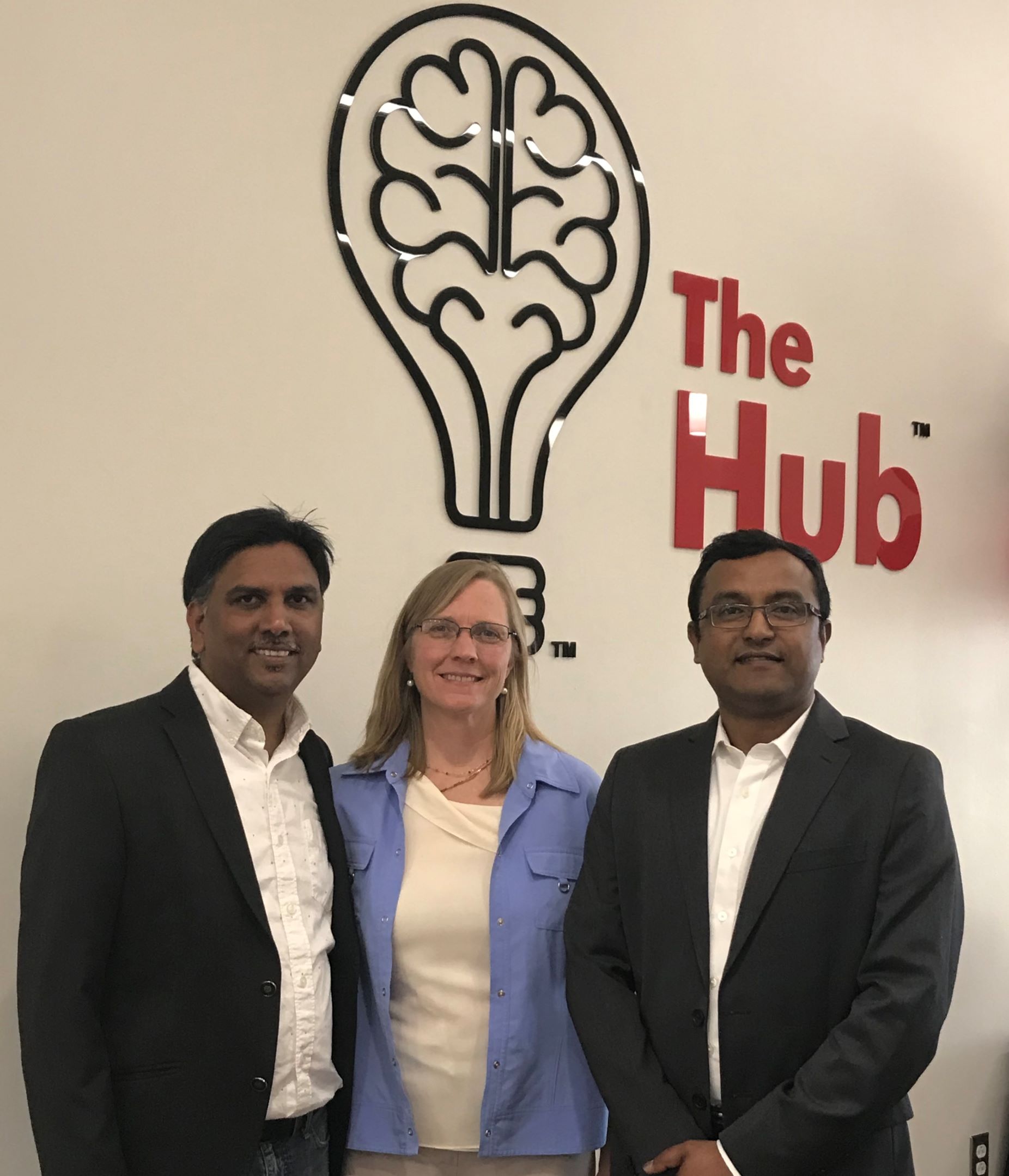
Biotech startup solves drug discovery pain point
NemaLife is proof that the Innovation Hub is true to its motto, "We launch West Texas startups." Technology that NemaLife licensed from Texas Tech University is currently scheduled to launch on a NASA-funded space mission in October 2019. NemaLife's CEO, Siva Vanapalli, says just over a year ago he and his team were only starting to think about forming the faculty-student startup. Now, weeks after graduating from the Texas Tech Accelerator Program, he says NemaLife "is fully open for business."
Dr. Vanapalli is a professor in the Department of Chemical Engineering at Texas Tech. He and his research team at Texas Tech developed a transparent microfluidic chamber that allows scientists to better study millimeter-long roundworms called C. elegans. The worms are often used in drug screening and other biological research experiments, like the one on muscle strength researchers will use during the planned October space mission.
NemaLife's mission is to develop technologies that can accelerate the pace of discovery of molecules that improve human health. Vanapalli explains, "Age is a huge risk factor for diseases. Worms are low-cost animal models to study aging and age-related diseases. However, existing approaches for life-long studies in worms are quite laborious. NemaLife has brought to market a technology that can accelerate the whole pace of drug discovery in this field."
Vanapalli says NemaLife would never have gotten off the ground without the TTU Accelerator Program at the Hub. "I don't think we would even have NemaLife. There's an element of accountability when you go through a program where every week or every month you are given tasks that guide you toward becoming a successful startup. I think it's quite amazing that it's been only a couple of months since graduation from the program, and we get to see the results," he says.
NemaLife recently showcased its automated system for lifespan studies at the International C. elegans Meeting. "We were inundated with people who were curious and wanted to learn about our product. We're in the process of fulfilling orders we received. It's a really exciting thing to see," he says. Vanapalli adds NemaLife also made valuable contacts with companies focusing on anti-aging research and extending human health span.
Vanapalli says NemaLife's next goal is to continue to engage with customers and understand what their needs are. He says that could include offering add-on features to the current product and providing screening and data services to customers outside of academia like drug companies.
'Hustle' means a lot to Vanapalli. He says what drives him is all about impact. "NemaLife is in a niche market, and I think that the opportunity we have can really disrupt that space. We can actually change the way invertebrate screening is being done in the broader community. Equally exciting is that NemaLife and a whole host of other companies can produce therapeutic discoveries to solve age-related diseases. The impact of these discoveries is huge due to the growing aging population," he says.
